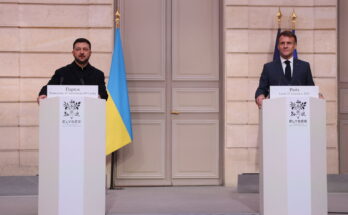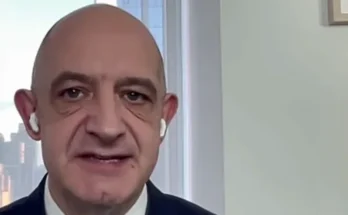How different the same country appears just four years later. After triumphing in the left-wing presidential primaries in 2021, Frente Amplio candidate Gabriel Boric did not hesitate to state that “Chile will be the tomb of neoliberalism”: a statement as optimistic as it is grandiose, which we could also see on Parisian newsstands translated exactly into French. Four years later, not only is Chilean neoliberalism in good health, but so is right-wing radicalism. What global and local factors can explain this denial? Much of the inevitable post-election left debate will have to answer this question.
In the first round of the presidential elections, the left-wing candidate Jeannette Jara (communist) triumphed with 26.85% of the votes, although very close to the radical right-wing candidate José Antonio Kast (23.92%), with 99% of the tables counted. Among the three right-wing candidates they represent just over 50% of the votes, an impressive figure for an election in which 85% of the electorate would have participated: Evelyn Matthei (12.46%) nominated by the three traditional center-right parties and Johannes Kaiser (13.94%) of the National Libertarian Party. The ballot is completely uphill for the left-wing candidate, given that she has very little room for growth: to tell the truth, the elections aim to end in a massacre if there is no genius or supernatural phenomena. Electorally speaking, the big question is knowing where the enormous vote achieved by the third candidate in the running, Franco Parisi, a populist without a surname, who obtained 19.71% of the votes, will end up.
But these elections are also relevant at a parliamentary level. At the time of writing this article the preliminary results are much less unfavorable for the left at the senatorial level (not so at the parliamentary level): we will see. What we must not lose sight of is the apparently remote possibility that the possible new presidential majority finds coordination in Congress, in one or both chambers. The People’s Party will decide, a force whose name is extraordinary for its clarity and which supports Franco Parisi. This is not a new party: it had already achieved unusual success in the 2021 elections (whose deputies left the party over time), a success that is repeated in these elections with 14 deputies elected and 12% of the votes. What remains to be seen is whether the fragmentation of the Chilean Congress, in particular of the Chamber of Deputies, will continue to be maintained in terms of the number of parties, starting from the assumption that each representative is usually a world unto himself, with autonomy of action and little attachment to the feeling of loyalty towards collective organizations.
These are the coordinates of what will be the second presidential round, the prognosis of which is very unfavorable for the candidate of the entire left: the left’s presidential result is the worst since 1990, and one of the worst in the last 100 years.
From now on the left will have to understand José Antonio Kast, his career and his political project well. There are two elements that are important to consider. The first is his early immersion in the international of ultra-conservative and reactionary parties: Kast was a member of the advisory committee of Network for Cultural Valuespresiding over it between 2022 and 2024. This network body is relevant in the universe of the far right, as it promotes the most conservative cultural values, whose platform is based on principles such as God, homeland, family and freedom: it is no coincidence that, starting his speech to his supporters, Kast begins by thanking God. In this sense Kast is linked to the best leaders of the far right and radical right: not only did he participate in the “Viva Europa” festivals organized by the leader of Vox Santiago Abascal, but he also knows the different projects that coexist there, communicating with each other.
Added to the above is a powerful signal sent by Kast in the middle of the campaign. In September the right-wing presidential candidate went to Italy to meet Giorgia Meloni, head of government of the country of the boot. With that trip Kast dispelled the doubt whether he was close to the illiberal project of the head of the Hungarian government Viktor Orban, or whether his project was more oriented towards a conservative form of government like that of Meloni.
These two elements make Kast a leader who, without too much sophistication, knows how to navigate today’s turbulent world.
As for Jeannette Jara, she embodies a great anomaly of the Chilean left: it is extremely strange that the candidate chosen in the left primaries is a communist, in times when the global and Chilean ideological winds are running exactly in the opposite direction.
But more profoundly, the question remains open as to the reasons why, in Chile, neoliberalism not only has not yielded, but is experiencing a crisis rebirth in a radical tone. To answer we will have to make an approximate assessment of a new left-wing government, which will end with the worst of defeats.



